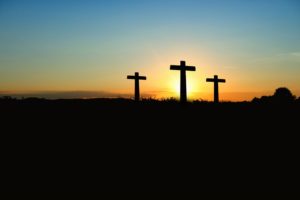On a recent visit to Reality San Francisco, I couldn’t help but feel that a large movement had begun throughout their community. Though there was over a thousand people in attendance, it was easy to feel the small community within the Mission District Middle School that Sunday morning. Usually Reality SF holds more services, but in January they are trying “slow church” – one service, the whole body, and lots of good vibes. As I looked around at the faces I noted significant diversity of cultural backgrounds, and a lot of young people. This caused me to recall a very interesting NPR special series that played out this past week called, “Losing Our Religion.”
“Losing Our Religion” brought up many things the 21st century Christian should be concerned with and aware of. In the first piece, we learned about the growth of the “nones.” “Nones” being the one-fifth of Americans who identify as having “none” under religious preference. The majority of these “nones” are under the age of 30. Some of the reasons attributed to this trend are that (1) The younger generation is moving away from any and all institutions, (2) Religion and politics have become too polarized, especially when it comes to gay marriage and abortion. Some say that religious organizations have become too involved with politics, rules, money, and power. And (3) the younger generation is socially liberal, and don’t seem to find themselves at home in a religious atmosphere. Experts say that young people are less religiously affiliated today than any other time in history, and that identifying Protestants are declining rapidly, and for the first time ever, are only making up 48% of the American population. Interestingly enough, the majority of the “nones” identify as “White”.
NPR dug deeper and continued to ask the question, “why,” to young people who had identified as “religious” in the past. Interviewed were persons of the Jewish, Muslim, Non-Denominational Christian, Catholic, and Seventh Day Adventist backgrounds. Overall, throughout the interviews I was hearing what we have been hearing for many years – these young people were struggling with ideas on hell, taking bible stories literally, homosexuality, sex before marriage, and the huge issue of suffering.
Diving into this issue of tragedy and suffering, NPR devoted the third day of their series to just this. Mother’s shared about losing their children, and wives about losing their husbands. One mother noted, “What kind of God lets my child get shot?” Another notes about how religious persons have it “easy,” in that they have hope in seeing their loved ones again. Similarly, in day four of the series, the young people gather again to discuss how religion can fill ones needs for community and belonging. They note that that is why they were originally attracted to religious organizations, to meet people, and be apart of something. They also noted the positive feelings they felt having a connection to something so big and powerful – “God”. The NPR reporter asked them, “Do you ever pray to God?” One participant responds, “Yeah, I do and I don’t know what to make of it, because I feel like a hypocrite. And I only do when I’m at my most scared or my most fearful.”
Suffering is something I am becoming more and more acquainted with in my daily life as a hospital social worker in training. Particularly this year has been a struggle for me as I have worked with pediatric oncology patients. The suffering that kids on chemotherapy endure leaves me speechless. But the question of suffering and evil in the world cannot be avoided by Christians. We must tackle this question head on, along with the other questions listed above by the young interviewees. Discipleship. Discipleship. Discipleship. The younger generation, my generation, needs to be poured into from our older and wiser brothers and sisters.
So as I walk away from Reality SF and peer into the parking lot as all of the recently baptized are drying off their wet hair and ringing out the water from their clothing, I say a prayer – that God would continue to use me, and call others, to continue to pour out our talents, and to do whatever we can to prevent this generation from losing their religion.
A warm thank you to Reality SF for making me feel so welcome during my first visit. Read more about them here.
Please take the time to listen to NPR’s entire “Losing Our Religion” series here.





2 Comments
Leave your reply.